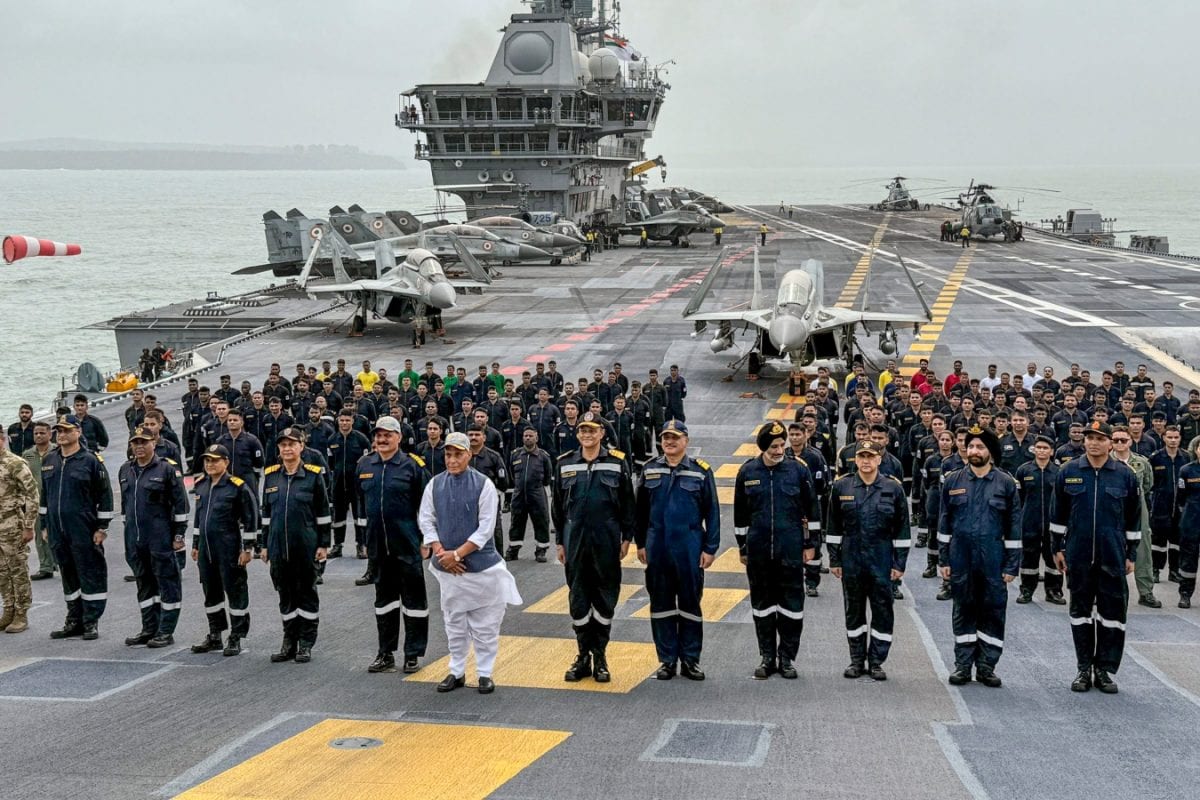

Following the success of Operation Sindoor, which showcased unprecedented tri-service synergy, the Indian government has taken a significant step to further integrate its armed forces. This move aims to enhance command efficiency and operational effectiveness, paving the way for a more cohesive and potent military force.
Operation Sindoor, launched on May 7, 2025, in response to the Pahalgam terror attack, demonstrated the strength of a coordinated tri-services approach. The operation involved precision airstrikes by the Indian Air Force on key targets, robust naval posturing by a Carrier Battle Group, and effective coordination between the Army and Border Security Force (BSF) on the ground. The Ministry of Defence (MoD) hailed the operation as a turning point in India's defense doctrine, showcasing strategic depth and technological dominance.
Building on this momentum, the government has notified crucial rules under the Inter-Services Organisations (Command, Control and Discipline) Act, 2023. These rules, effective from May 27, 2025, empower commanders of tri-service organizations with full authority over personnel from the Army, Navy, and Air Force serving under them. This is a major milestone in India's long-pending plan to integrate its three military services for more effective joint operations.
The Inter-Services Organisations (ISO) Act, 2023, promotes jointness in the Indian Armed Forces by empowering commanders of tri-service formations with authority over personnel from all three services. This unifies the disciplinary chain, speeds up decision-making, and fosters operational and cultural integration. By streamlining command without affecting individual Service identities, the Act lays the legal foundation for future integrated theatre commands.
The implementation of these rules is a critical step towards the establishment of integrated theatre commands, a key goal of the ongoing theaterisation drive. Integrated theatre commands will unify the capabilities of the three services based on geography and function, placing military elements, assets, and personnel under a single commander-in-chief.
The concept of integrated theatre commands has been under consideration for several years. The Kargil Review Committee in 1999 recommended the creation of integrated theatre commands and the post of Chief of Defence Staff (CDS) to improve joint operations. The Shekatkar Committee in 2016 proposed three integrated theatre commands to enhance tri-service synergy and resource efficiency.
While the creation of integrated theatre commands is a complex process, the government is committed to moving forward. The appointment of the CDS as the head of the Department of Military Affairs, the enactment of the Inter-Services Organisation (Command, Control, and Discipline) Act, 2023, and the establishment of the first Tri-Service Common Defence Station in Mumbai in 2024 are all significant steps in this direction.
Currently, Lieutenant General Anil Chauhan serves as the Chief of Defence Staff (CDS).
The move towards greater tri-service integration is expected to enhance India's defense capabilities and improve its ability to respond to emerging security challenges. By fostering greater synergy and coordination among the three services, India aims to create a more agile, efficient, and effective military force.